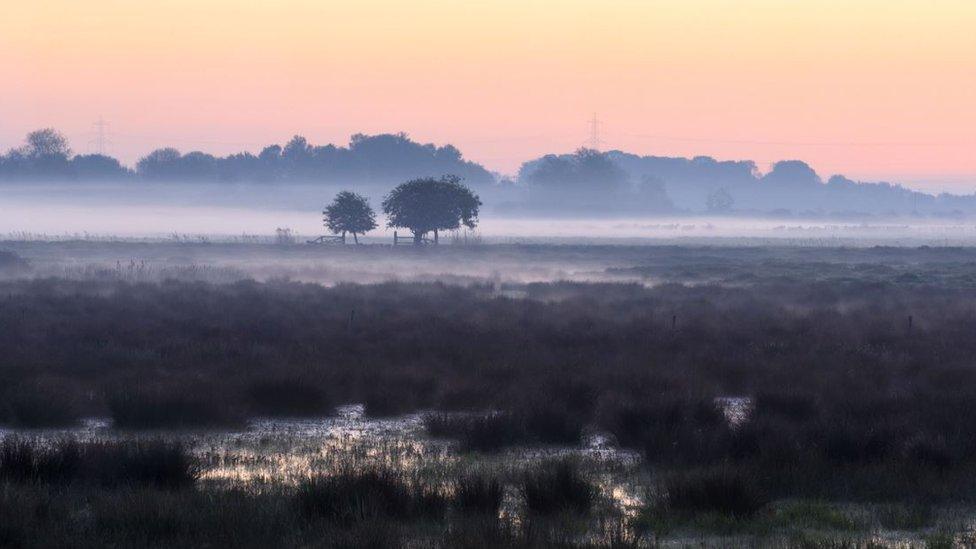Wicken Fen marks 125 years with £1.8m peat project
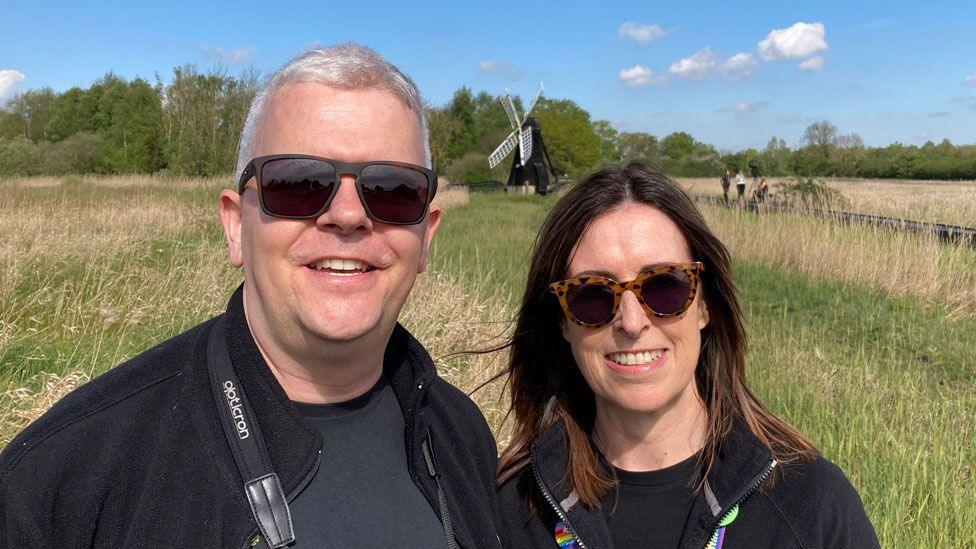
Ellis Selway (left) said restoring the peat would help control flooding and provide a wildlife haven
- Published
The National Trust has begun a £1.8m peat restoration project to mark the acquisition of its first nature reserve 125 years ago.
The conservation charity acquired two acres (0.8ha) of land at Wicken Fen in Cambridgeshire in 1899, external and it now extends across more than 2,000 acres (830ha).
It plans to restore 531 acres (215ha) of peat, a vital carbon store, at the site to retain rainwater and manage water tables to create saturated, healthy peat.
Peat restoration project manager Ellis Selway says that when peat loses its water, it starts to oxidise, dry out and disappear.
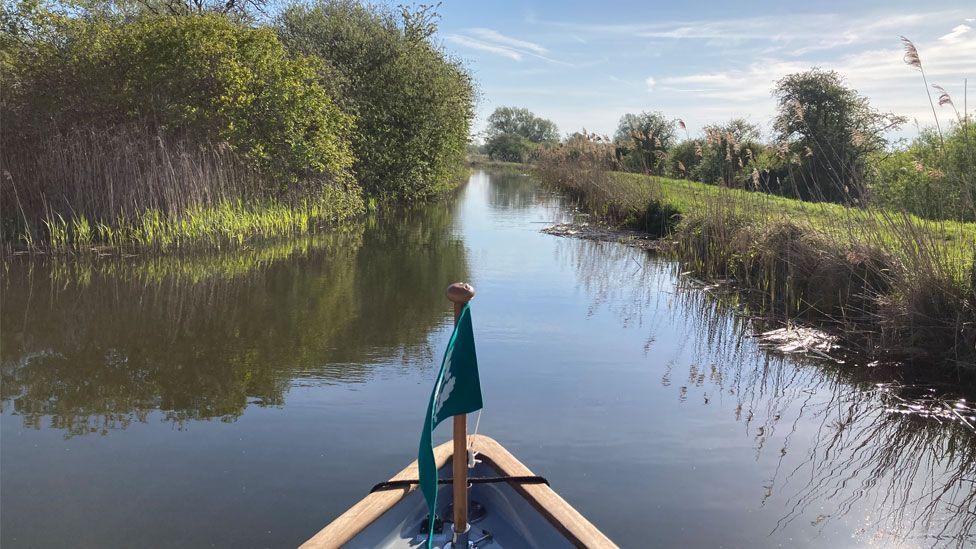
Wicken Fen is one of just four undrained fens left in Cambridgeshire and provides a habitat for rare and unusual plants, birds and insects
The charity said without action, the majority of the remaining peat in the Fens could be lost within 30 years, emitting harmful carbon as it degrades.
Mr Selway said: "It's about balancing that water in the peat.
"When it is used for agricultural use, it starts to dry out and disappear.
"What we're going to try to do is bring that water back into the peat, it soaks it up like a sponge and when the vegetation starts to break down, it starts to form peat."
The trust said healthy peatlands had several roles, including storing carbon, helping to control flooding, reducing the risk of wildfires and drought and providing a habitat for rare and unusual plants, birds and insects.
Nearly 9,500 species have been recorded at Wicken Fen, including 2,072 species of flies, 1,775 species of beetles and 1,252 species of moths.

These include breeding pairs of marsh harriers, whose numbers have grown from one breeding pair in the 1970s to about 500 pairs across the UK, said Mr Selway
Alan Kell, countryside manager at Wicken Fen, said: "Despite now being considered one of the driest areas of the UK, the East Anglian fens was once a vast wetland covering more than 3,800 sq km (1,467 sq miles), larger than Cambridgeshire, consisting of deep peat soils, before being widely drained for agriculture in the 17th Century.
"Across the fens, it's estimated that we lose 10 to 15mm (0.5 to 0.6in) of peat a year, which would take 10 to 15 years to generate."
The project hopes to stop peat from drying out by repairing and installing clay banks to retain rainwater, and managing water tables to create saturated, healthy peat.
It has been made possible due to fundraising, legacies, donations and a grant of more than £1.3m from Natural England.
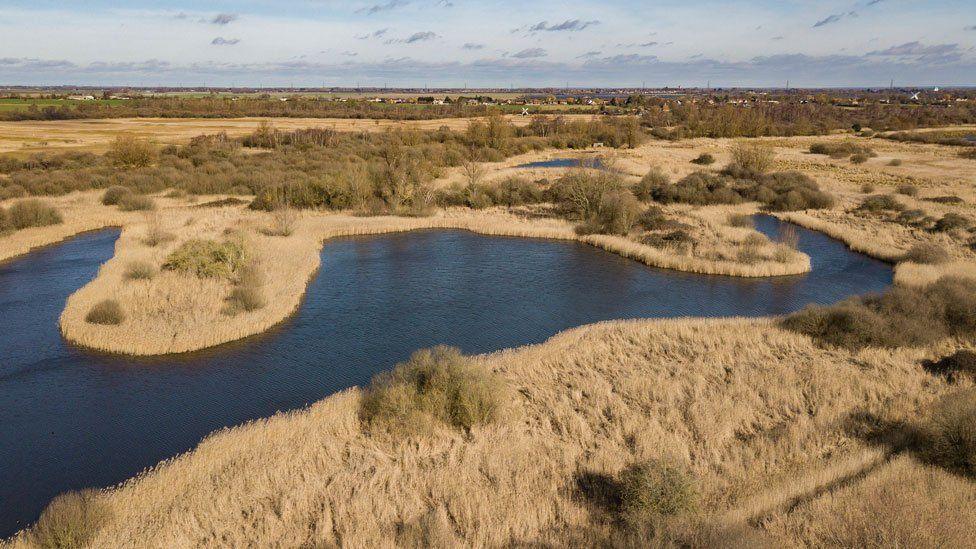
At least 70,000 people visit Wicken Fen visitors annually, with the trust hoping many more will take part in the reserve's celebrations marking 125 years
Follow Cambridgeshire news on Facebook, external, Instagram, external and X, external. Got a story? Email eastofenglandnews@bbc.co.uk, external or WhatsApp us on 0800 169 1830
Related topics
- Published21 January 2024
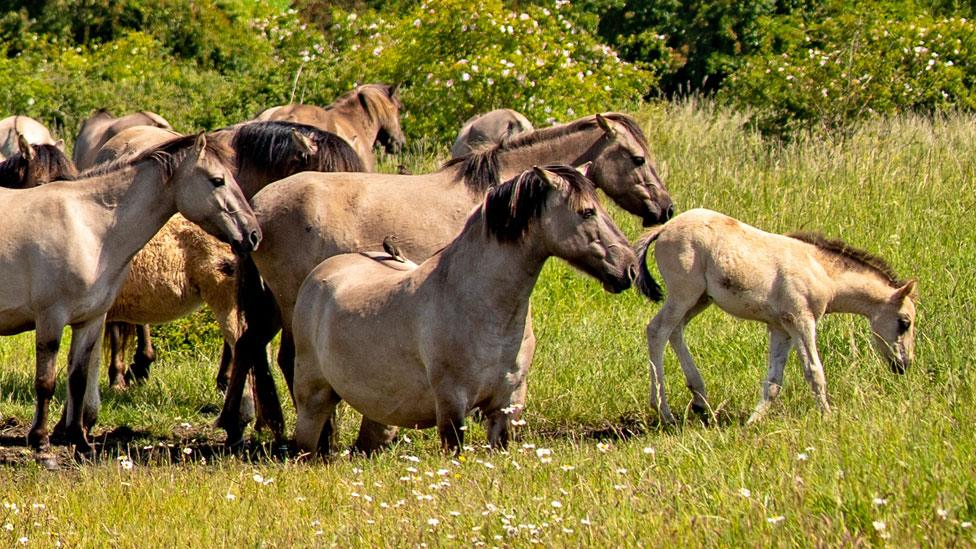
- Published15 December 2023
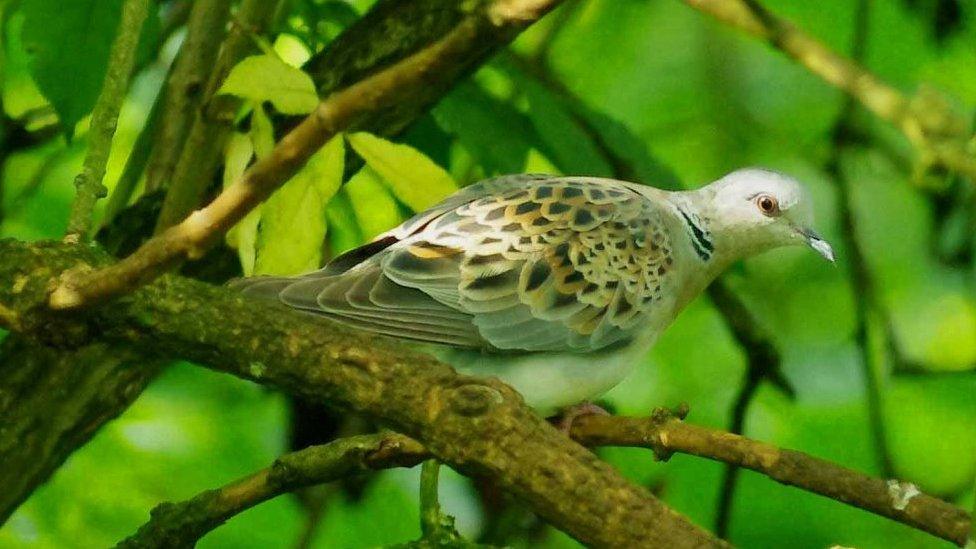
- Published24 November 2023
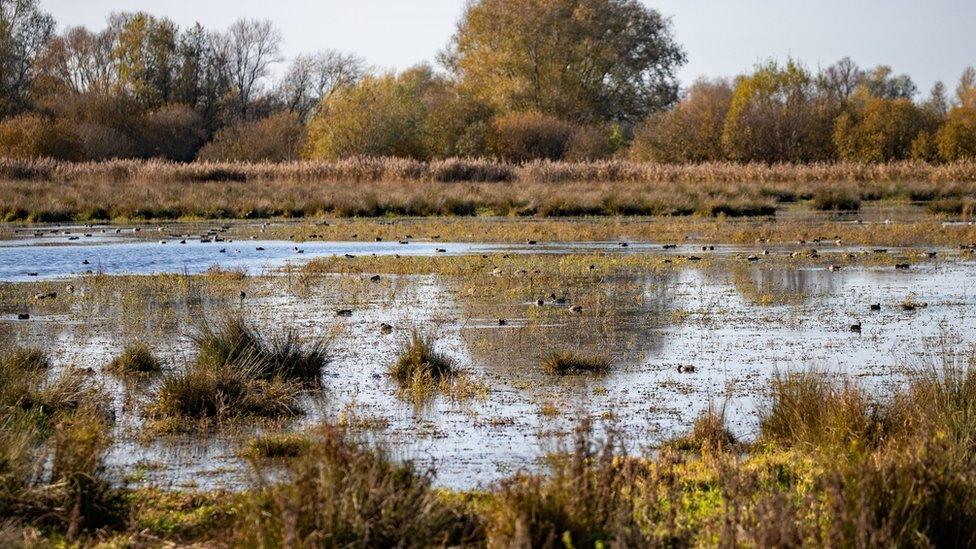
- Published1 May 2019
